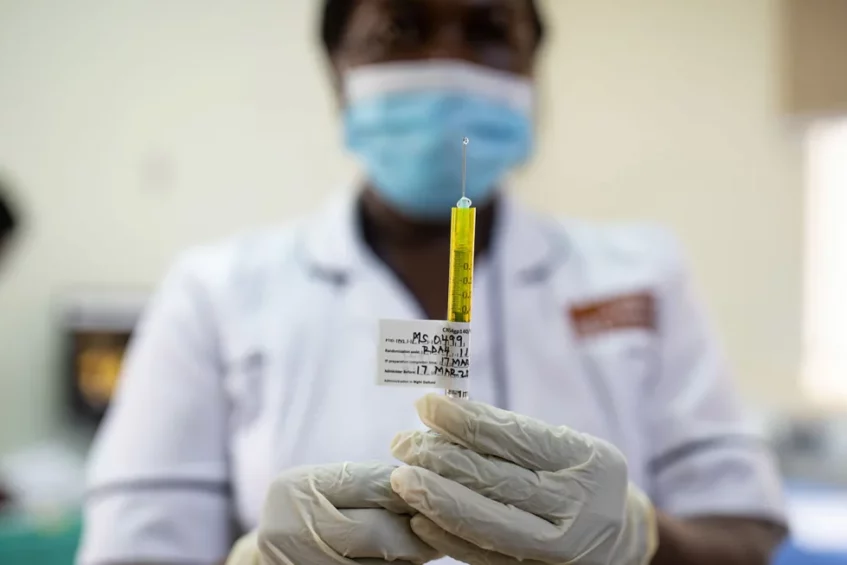
A nurse preparers a trial dose of PrEPVacc to inject into a participant on March 17, 2022, in Masaka, Uganda. (uke Dray/Getty Images/via CNN)
Ugandan scientists have said they are designing an HIV vaccine to prevent the virus – months after a similar vaccine trial was halted over ineffectiveness.
Scientists at the Uganda Virus Research Institute (UVRI) said they are launching another attempt after acquiring funding from the US Agency for International Development.
Professor Pontiano Kaleebu, Director of the UVRI told Uganda’s Daily Monitor newspaper, that the scientists are still hopeful they will find an HIV vaccine.
“We have started working on constructing an HIV vaccine. We have funding from the United States Agency for International Development through the International Aids Vaccine Initiative (IAVI) to design a messenger Ribonucleic Acid (mRNA) vaccine,” he told Monitor.
The announcement comes four months after the discontinuation of the clinical trials for an HIV prevention vaccine, spearheaded by scientists and tested in Uganda, Tanzania and South African over poor results.
The trials were discontinued because an independent monitoring committee found that the vaccine regimens had “little or no chance” of preventing HIV acquisition.
Dozens of HIV vaccine candidates have been tested and discarded over the past few decades, according to the New York Times.
The mRNA vaccine being designed in Uganda – is produced using a new technology which relies on mRNA created in the laboratory to teach human cells how to make a protein that triggers an immune response.
An mRNA is a molecule (structural unit of a substance) that converts information from the genetic material Deoxyribonucleic Acid (DNA) in our body into protein.
Prof Kaleebu, however, told Daily Monitor that it may take about a decade to come up with a major breakthrough on the development of the HIV vaccine, despite ongoing global efforts.
“All the concepts, the vaccines that we have tried did not work. Now scientists are going back to the drawing table to understand, design and do more. The large trial that we conducted recently called PrEPVacc is likely to be the last one in the coming few years. It could take eight years.”
“We have now gone back to experimental medicine vaccine studies –to the drawing table. So, HIV is very complicated. We don’t have a vaccine yeast and I cannot tell you we have a solution now, but science is moving,” he added.
HIV remains a major global public health issue, having claimed 40.4 million lives so far with ongoing transmission in all countries globally, while some countries report increasing trends in new infections.
In 2022, South Sudan’s Health Minister Yolanda Awel announced that an estimated 173,000 people were living with HIV in South Sudan – an increase in new HIV/AIDS infections compared to 2021.
The Chairperson of South Sudan HIV/AIDS Commission said in 2021, the country had achieved little in suppressing HIV transmission, although she stated that public knowledge of the virus has improved, and the level of stigma has reduced.
There is no cure for HIV infection, but with effective prevention, diagnosis and treatment, it has become a manageable chronic health condition, enabling people living with HIV to lead long and healthy lives.
Support Eye Radio, the first independent radio broadcaster of news, information & entertainment in South Sudan.
Make a monthly or a one off contribution.
Copyright 2024. All rights reserved. Eye Radio is a product of Eye Media Limited.